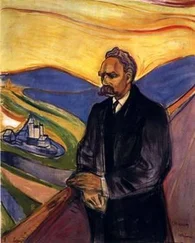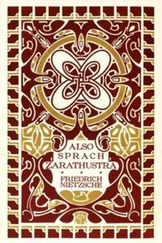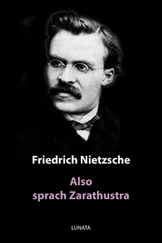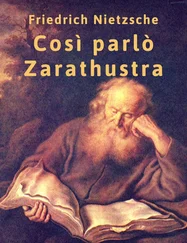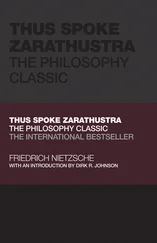1 ...7 8 9 11 12 13 ...16 Instruments and playthings are sense and spirit: behind them there is still the Self. The Self seeketh with the eyes of the senses, it hearkeneth also with the ears of the spirit.
Ever hearkeneth the Self, and seeketh; it compareth, mastereth, conquereth, and destroyeth. It ruleth, and is also the ego’s ruler.
Behind thy thoughts and feelings, my brother, there is a mighty lord, an unknown sage—it is called Self; it dwelleth in thy body, it is thy body.
There is more sagacity in thy body than in thy best wisdom. And who then knoweth why thy body requireth just thy best wisdom?
Thy Self laugheth at thine ego, and its proud prancings. “What are these prancings and flights of thought unto me?” it saith to itself. “A by-way to my purpose. I am the leading-string of the ego, and the prompter of its notions.”
The Self saith unto the ego: “Feel pain!” And thereupon it suffereth, and thinketh how it may put an end thereto — and for that very purpose it is meant to think.
The Self saith unto the ego: “Feel pleasure!” Thereupon it rejoiceth, and thinketh how it may ofttimes rejoice—and for that very purpose it is meant to think.
To the despisers of the body will I speak a word. That they despise is caused by their esteem. What is it that created esteeming and despising and worth and will?
The creating Self created for itself esteeming and despising, it created for itself joy and woe. The creating body created for itself spirit, as a hand to its will.
Even in your folly and despising ye each serve your Self, ye despisers of the body. I tell you, your very Self wanteth to die, and turneth away from life.
No longer can your Self do that which it desireth most:— create beyond itself. That is what it desireth most; that is all its fervour.
But it is now too late to do so:— so your Self wisheth to succumb, ye despisers of the body.
To succumb—so wisheth your Self; and therefore have ye become despisers of the body. For ye can no longer create beyond yourselves.
And therefore are ye now angry with life and with the earth. And unconscious envy is in the sidelong look of your contempt.
I go not your way, ye despisers of the body! Ye are no bridges for me to the Superman! —
Thus spake Zarathustra.
Table of Contents
My brother, when thou hast a virtue, and it is thine own virtue, thou hast it in common with no one.
To be sure, thou wouldst call it by name and caress it; thou wouldst pull its ears and amuse thyself with it.
And lo! Then hast thou its name in common with the people, and hast become one of the people and the herd with thy virtue!
Better for thee to say: “Ineffable is it, and nameless, that which is pain and sweetness to my soul, and also the hunger of my bowels.”
Let thy virtue be too high for the familiarity of names, and if thou must speak of it, be not ashamed to stammer about it.
Thus speak and stammer: “That is MY good, that do I love, thus doth it please me entirely, thus only do I desire the good.
Not as the law of a God do I desire it, not as a human law or a human need do I desire it; it is not to be a guide-post for me to superearths and paradises.
An earthly virtue is it which I love: little prudence is therein, and the least everyday wisdom.
But that bird built its nest beside me: therefore, I love and cherish it—now sitteth it beside me on its golden eggs.”
Thus shouldst thou stammer, and praise thy virtue.
Once hadst thou passions and calledst them evil. But now hast thou only thy virtues: they grew out of thy passions.
Thou implantedst thy highest aim into the heart of those passions: then became they thy virtues and joys.
And though thou wert of the race of the hot-tempered, or of the voluptuous, or of the fanatical, or the vindictive;
All thy passions in the end became virtues, and all thy devils angels.
Once hadst thou wild dogs in thy cellar: but they changed at last into birds and charming songstresses.
Out of thy poisons brewedst thou balsam for thyself; thy cow, affliction, milkedst thou—now drinketh thou the sweet milk of her udder.
And nothing evil groweth in thee any longer, unless it be the evil that groweth out of the conflict of thy virtues.
My brother, if thou be fortunate, then wilt thou have one virtue and no more: thus goest thou easier over the bridge.
Illustrious is it to have many virtues, but a hard lot; and many a one hath gone into the wilderness and killed himself, because he was weary of being the battle and battlefield of virtues.
My brother, are war and battle evil? Necessary, however, is the evil; necessary are the envy and the distrust and the back-biting among the virtues.
Lo! how each of thy virtues is covetous of the highest place; it wanteth thy whole spirit to be its herald, it wanteth thy whole power, in wrath, hatred, and love.
Jealous is every virtue of the others, and a dreadful thing is jealousy. Even virtues may succumb by jealousy.
He whom the flame of jealousy encompasseth, turneth at last, like the scorpion, the poisoned sting against himself.
Ah! my brother, hast thou never seen a virtue backbite and stab itself?
Man is something that hath to be surpassed: and therefore shalt thou love thy virtues—for thou wilt succumb by them. —
Thus spake Zarathustra.
Table of Contents
Ye do not mean to slay, ye judges and sacrificers, until the animal hath bowed its head? Lo! the pale criminal hath bowed his head: out of his eye speaketh the great contempt.
“Mine ego is something which is to be surpassed: mine ego is to me the great contempt of man”: so speaketh it out of that eye.
When he judged himself—that was his supreme moment; let not the exalted one relapse again into his low estate!
There is no salvation for him who thus suffereth from himself, unless it be speedy death.
Your slaying, ye judges, shall be pity, and not revenge; and in that ye slay, see to it that ye yourselves justify life!
It is not enough that ye should reconcile with him whom ye slay. Let your sorrow be love to the Superman: thus will ye justify your own survival!
“Enemy” shall ye say but not “villain,” “invalid” shall ye say but not “wretch,” “fool” shall ye say but not “sinner.”
And thou, red judge, if thou would say audibly all thou hast done in thought, then would every one cry: “Away with the nastiness and the virulent reptile!”
But one thing is the thought, another thing is the deed, and another thing is the idea of the deed. The wheel of causality doth not roll between them.
An idea made this pale man pale. Adequate was he for his deed when he did it, but the idea of it, he could not endure when it was done.
Evermore did he now see himself as the doer of one deed. Madness, I call this: the exception reversed itself to the rule in him.
The streak of chalk bewitcheth the hen; the stroke he struck bewitched his weak reason. Madness after the deed, I call this.
Hearken, ye judges! There is another madness besides, and it is before the deed. Ah! ye have not gone deep enough into this soul!
Thus speaketh the red judge: “Why did this criminal commit murder? He meant to rob.” I tell you, however, that his soul wanted blood, not booty: he thirsted for the happiness of the knife!
But his weak reason understood not this madness, and it persuaded him. “What matter about blood!” it said; “wishest thou not, at least, to make booty thereby? Or take revenge?”
And he hearkened unto his weak reason: like lead lay its words upon him—thereupon he robbed when he murdered. He did not mean to be ashamed of his madness.
Читать дальше

